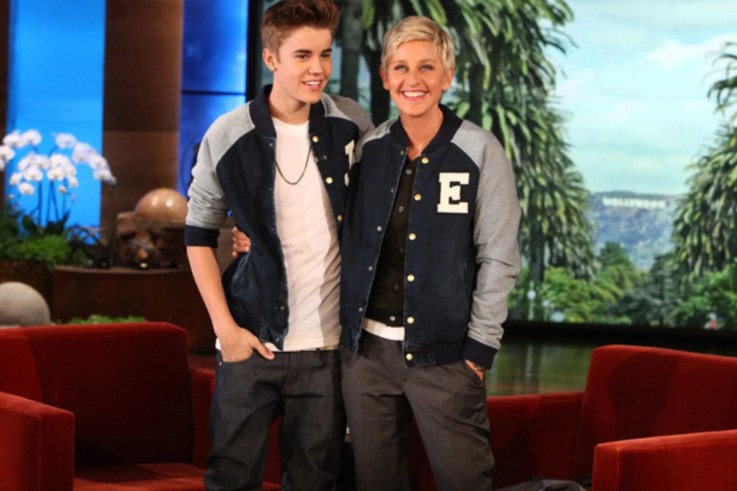
When I sit with a client in my office, I try to remain aware of the power that the words I use can have. The most common way of practicing therapy is in a one-on-one setting. This allows me to tailor my words to the person in the chair across from me. I can craft words that I feel will best help that other person take in the information and hear what they need to hear to heal. Clients feel like I’m speaking to them and their needs alone. It’s not always easy, but it’s effective. If I’m reckless, my words have the power to push people further from their best self. If I’m able to pinpoint the correct thing to say, I can help them start to move past their “stuff.”
Words are, in my not so humble opinion, our most inexhaustible source of magic, capable of both inflicting injury and remedying it.
Albus Dumbledore
Dumbledore’s words sit heavy on my shoulders when I sit down to record an episode of GT Radio or The Happiest Pod on Earth. As a therapist, I understand the power of words. As a podcaster I do too. Podcasters can’t tailor their words to each listener. Whether a podcast has 5 listeners, or 5k listeners, odds are that each listener’s experience is different. That makes it hard to reach everyone.

Pleasing everyone isn’t possible. I get that. If I get people thinking/talking, that’s great. Sometimes the disagreements fuel the best discussions. I try my best and hope that my words land well with whoever’s listening, and that I don’t do harm. Ultimately, I hope I can reach someone and help make them feel seen. Whenever I get a note that something I said was impactful, it makes my heart swell to know something I said landed well with someone. There are other podcasters that feel the same out there too.
Murder has…the power to heal?
True crime is very hot and popular right now. Documentaries, reenactment shows, books, subscriptions crates, and podcasts about the darker side of our world abound. I’ve discussed before how the horror genre can allow us to explore our fear in a safe way. True crime is different. In horror, the things that go bump in the night aren’t real. When we experience those stories, we know that a werewolf isn’t going to eat us or a demon isn’t going to possess us. With true crime…the stories are real. Real terror, trauma, and tragedy. So what can be positive or healing about that?
One podcast in particular comes to mind when I try to explain this: My Favorite Murder.

Murderinos unite!
The hosts of My Favorite Murder, Karen and Georgia, have a way with words for larger audiences that is hard to come even close to. Their episodes are very conversational because they record with each other in Georgia’s living room, and it has a way of making each listener feel like they’re in the room with them. Followed by thousands of murderinos (what they call their listeners), they say what they’re going to say, without trying to please everyone and doing little fact checking. What puts them apart is their willingness to admit they’re wrong.

They often have a “corrections corner” in which they admit where they’ve screwed up in past episodes. The duo admit their faults and apologize to their fans. They use humor to talk about the tough stuff (which, admittedly is their entire podcast). They’re also unabashedly honest about their mental health struggles. Georgia talks about her depression and anxiety, and going to therapy before recording on the regular, and Karen discusses her struggles with drug and alcohol use. They discuss it in a lighthearted, funny, and honest way. Friends of mine and clients alike have said they were inspired to get help and go to therapy because of listening to the show.
Murderinos don’t have to hide their interests and hobbies anymore. They’ve found their people. Karen and Georgia have built a supportive, creative, caring community out of something that scares off many people even by mentioning the title of the show. They’re saving lives, whether they know it or not.
Light from the dark
My Favorite Murder shines a light on the scary stuff, in order to help people cope with the knowledge that there is a boogey man out there. Karen and Georgia crack jokes and throw out one liners that are actually pretty good advice. “Lock your fucking doors.” “Fuck politeness.” “Call your dad, you’re in a cult.” These lines are humorous but real. Their sign off for the show “Stay sexy, don’t get murdered” is a manta for many murderinos, who’ve had it tattooed on their bodies. They also manage to be respectful of the dead, even when making light of the horrors they went through. It’s hard to imagine, but it’s definitely worth listening to.
I’m only just now finishing up the first year of the show. I can’t wait to binge the 150+ more episodes I have to hear and belly laugh to some really messed up humor.


![QCElogoweb[2]](https://i0.wp.com/cartoonart.org/wp-content/uploads/2014/05/QCElogoweb2-300x286.png?resize=300%2C286)















